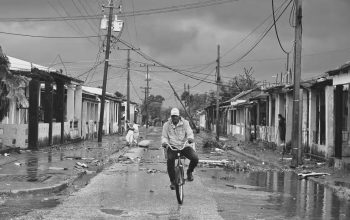Photo Credit: Town of Huntsville
GTA research team consisting of researchers from McMaster University and the University of Toronto isolate virus behind COVID-19
Rosemarie Rotundo, The Mike Staff Writer
On March 12, Sunnybrook announced that a team of Greater Toronto Area based (GTA) researchers within the health science center from McMaster University and the University of Toronto (U of T) have isolated the agent responsible for the turbulent outbreak of COVID-19, the deadly respiratory virus responsible for an ongoing worldwide pandemic.
The agent isolated is referred to as severe acute respiratory syndrome coronavirus 2, clinically denoted SARS-CoV-2. The team of researchers includes Robert Kozak and Samira Mubareka of both Sunnybrook and U of T, and Arinjay Banerjee and Karen Mossman from McMaster University. “Researchers from these world-class institutions came together in a grassroots way to successfully isolate the virus in just a few short weeks,” Kozak, a clinical microbiologist within Sunnybrook, claimed.
The U of T researchers, Mubareka and Kozak, work with a local team of scientists to further their understanding of the novel coronavirus outbreak and generate the necessary tools to control it. The researchers use whole genome sequencing technology to both maneuver the virus’ evolution and spread and assist in the characterization of the virus isolate. Whole genome sequencing is a comprehensive process to determine the entire DNA sequence of an organism. In other words, the technology can be used to reveal genetic information contained within a given DNA segment.
Isolating the virus is crucial. Researchers can use the isolated agent to explore the biological nature of the novel virus as well as its spread and evolution, which can be further used to navigate effective long-term preventative and treatment methods. The virus isolate can be distributed to a number of laboratories globally, equipped with the necessary machinery to best analyze the agent. A number of researchers worldwide collaborate in hopes of maximizing inflow of information on the virus.
Coronavirus initially originated in Wuhan City in the Hubei province of China in late December 2019. In the several months since, the virus has emerged as a cause of global concern. COVID-19 has been hitting a number of developed and developing countries hard around the globe, with several countries responding through the enforcement of a legal lockdown, where citizens can be fined for any social interaction as a result of a failure to self-isolate.
On March 13, 2020 the University of Toronto cancelled all in person classes to limit the spread of the virus within the campus community. Students have been urged to self-isolate and not leave their homes unless absolutely necessary. Since the cancellation of classes, the university has continued to make significant modifications to course structure by cancelling the remainder of all in-person sessions and removing several course regulations for students to add slight ease to a turbulent time, such as drop-date and CR/NCR extensions, and removal of regulations on courses that apply for NCR. The university also announced the cancellation of Spring convocation for the 2020 graduating class, while other Canadian institutions opted for postponement.
For more updates on U of T’s response to COVID-19, students are encouraged to visit https://www.utoronto.ca/message-from-the-university-regarding-the-coronavirus/archive.




